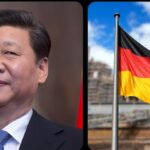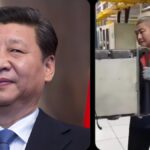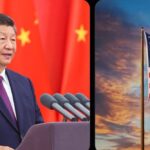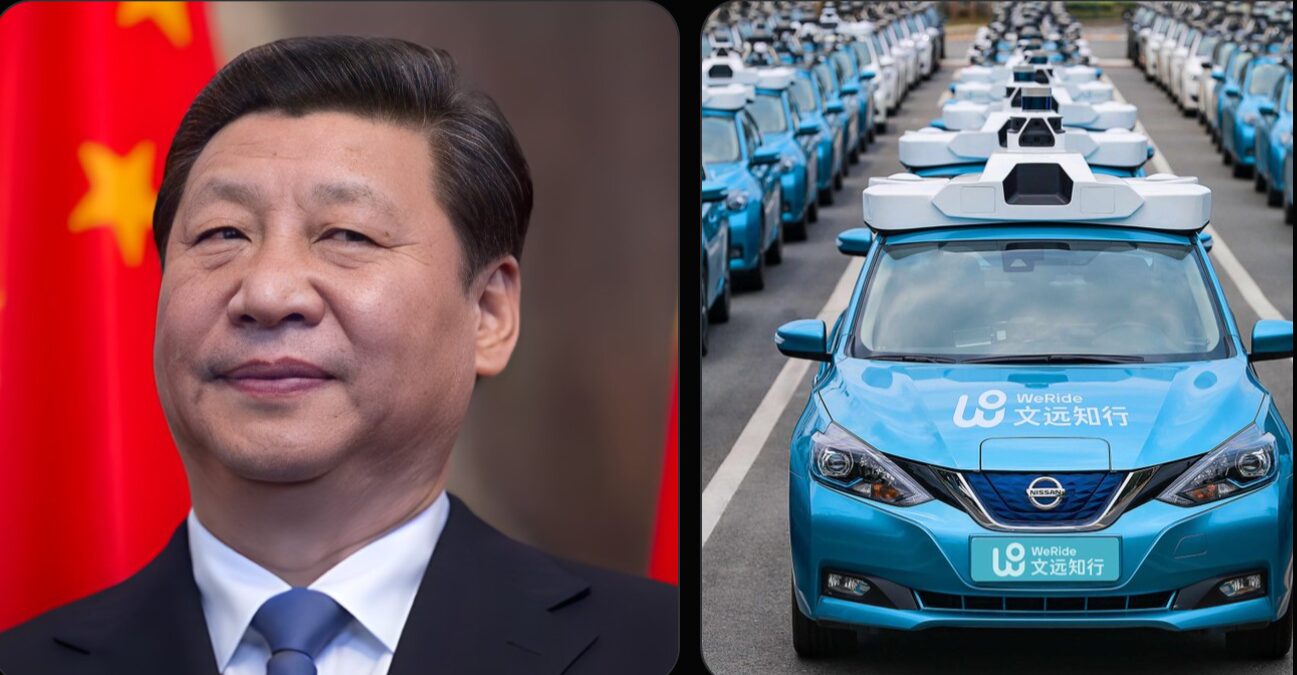China agrees to take back its illegal immigrants living in the us after president trump threatened tariffs & sanctions
In a surprising turn of events, the Chinese government has agreed to accept the return of its citizens living illegally in the United States. This decision came after former President Donald Trump threatened to impose tariffs and sanctions on China if the country did not cooperate in addressing the issue of illegal immigration. The agreement marks a significant shift in U.S.-China relations and raises questions about the intersection of international diplomacy, immigration policy, and economic leverage.
Background on the issue of illegal immigration
Illegal immigration has been a hot-button issue in the United States for many years, with both political parties grappling with how to address the millions of undocumented immigrants living in the country. China has long been one of the top countries of origin for illegal immigrants in the U.S., with many Chinese nationals entering the country on tourist or student visas and overstaying their permits.
While some of these individuals may have arrived seeking better economic opportunities or to escape political persecution, their status as undocumented immigrants has caused tension between the U.S. and China. U.S. immigration authorities have long called for the return of these individuals to their home countries, but getting foreign governments to accept their return has proven to be a significant challenge.
In the past, the U.S. government has been forced to negotiate with countries to arrange for the deportation of their nationals. However, these negotiations often face roadblocks, including resistance from foreign governments, concerns over human rights, and logistical challenges related to repatriating individuals who may not have proper identification or legal status in their home country.
Trump’s threat of tariffs and sanctions
Former President Donald Trump’s administration took a hardline approach to immigration, often using economic and diplomatic pressure to achieve its goals. In this case, Trump used tariffs and sanctions as leverage to push China into agreeing to take back its illegal immigrants.
Trump’s threat was aimed at forcing China to comply with U.S. demands on immigration. By threatening to impose additional tariffs on Chinese goods and potentially sanction Chinese companies or government officials, Trump sought to create economic pressure on China, which relies heavily on trade with the United States. The idea was that China would prioritize addressing the issue of illegal immigration to avoid further economic consequences.
While the move was controversial, it reflected Trump’s “America First” foreign policy, which focused on using the country’s economic power to achieve its objectives. Trump had previously used tariffs as a tool in trade negotiations with China, and the threat of additional sanctions provided him with another means of exerting pressure on the Chinese government.
China’s response and agreement to take back its citizens
In a significant diplomatic development, China has agreed to cooperate with the U.S. government in repatriating its nationals who are living illegally in the United States. While the details of the agreement are still being worked out, China has reportedly promised to accept the return of a number of individuals who were previously subject to deportation.
The Chinese government has historically been reluctant to accept the repatriation of its nationals, especially those who may have overstayed their visas or violated U.S. immigration laws. However, the threat of tariffs and sanctions may have convinced China that cooperating with the U.S. was in its best interest, particularly given the ongoing trade relationship between the two countries.
For the U.S., this agreement represents a significant victory in its efforts to address illegal immigration. The return of Chinese nationals who are living illegally in the U.S. is expected to reduce the strain on immigration enforcement resources and help streamline the deportation process.
The impact on U.S.-China relations
The agreement to repatriate illegal immigrants is likely to have significant implications for U.S.-China relations. While the two countries have been at odds over numerous issues, including trade, human rights, and territorial disputes, this agreement represents an unexpected area of cooperation. The deal could be seen as a step toward resolving some of the tensions between the U.S. and China, at least on the issue of immigration.
However, the agreement also highlights the complex nature of U.S.-China relations. While cooperation on illegal immigration may be seen as a positive development, it also underscores the role of economic leverage in diplomatic negotiations. The use of tariffs and sanctions to achieve policy objectives may be viewed as a coercive tactic, and it remains to be seen whether this approach will have lasting consequences for future diplomatic relations between the two countries.
Additionally, the agreement may have implications for other countries with large populations of illegal immigrants in the U.S. If China is willing to cooperate on immigration issues under economic pressure, other nations may be more inclined to do the same. This could set a precedent for using trade and economic measures to influence foreign governments on immigration policy.
Potential challenges and criticisms
While the agreement to repatriate illegal immigrants may be seen as a diplomatic win for the U.S., it is not without its challenges and criticisms. One of the primary concerns is how the process of repatriation will be carried out and whether it will be done in a fair and humane manner. There are concerns that the individuals being deported may face mistreatment or discrimination upon their return to China, particularly if they are perceived as having violated U.S. immigration laws.
Additionally, critics of the Trump administration’s hardline approach to immigration may argue that using tariffs and sanctions to force foreign governments into compliance is an inappropriate and counterproductive strategy. There are concerns that this approach could harm diplomatic relations in the long term and further strain the already tense relationship between the U.S. and China.
Another challenge is the logistics of repatriating individuals who may not have proper documentation or legal status. Many of the Chinese nationals living illegally in the U.S. may have fled political persecution or other hardships in their home country, and their return could expose them to further challenges in China. Ensuring that the deportation process is handled in a way that respects human rights and ensures the safety of those being repatriated will be a key concern.
The broader implications for immigration policy
The agreement between China and the U.S. to address the issue of illegal immigration could have broader implications for U.S. immigration policy. If other countries follow China’s lead and agree to take back their nationals living illegally in the U.S., it could help address some of the challenges associated with immigration enforcement and deportation.
However, the broader issue of immigration reform remains unresolved. The U.S. continues to face challenges related to undocumented immigration, particularly from countries in Central America, and a comprehensive solution to the immigration crisis remains elusive. The China agreement may be seen as a small but significant step in addressing the issue, but much work remains to be done to create a fair and humane immigration system in the U.S.
Final thoughts
The agreement between China and the United States to repatriate illegal immigrants is a notable development in U.S.-China relations, driven by the leverage of tariffs and sanctions. While this move may help alleviate some of the challenges related to immigration enforcement, it also raises important questions about the role of economic pressure in diplomatic negotiations and the broader implications for U.S. foreign policy.
As the details of the agreement continue to unfold, it will be interesting to see how this issue affects both U.S.-China relations and the future of immigration policy in the United States. Whether this agreement becomes a model for future diplomatic negotiations or a temporary resolution to a complex issue remains to be seen.

















Post Comment